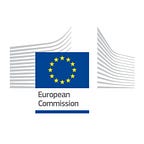5 Facts on the European Union and Humanitarian Aid
About 65 million people worldwide are either refugees or displaced within their own country. Together, they would make up the population of the 24th biggest country in the world — a country only slightly smaller than Italy and much bigger than Tanzania. It is the highest figure ever recorded in history.
Although the past few years have been marked by highly devastating natural disasters, such as the 2015 earthquake in Nepal, and more recently hurricane Matthew in Haiti, war and conflict remain the main drivers of humanitarian crises worldwide, with the enduring conflict in Syria topping this tragic list.
Be it a disaster or a conflict, the European Union ensures rapid and effective delivery of relief assistance to any populations in need, anywhere in the world.
The EU — composed of 28 member states — is the leading global donor of humanitarian aid. Help and assistance are expressions of solidarity that is shared by all EU member states.
But what is EU humanitarian aid in practice? Here is what you need to know:
EU Humanitarian Aid…
…is principled.
Our work is guided by four underlying principles — humanity, neutrality, impartiality and independence, all grounded in International Humanitarian Law. Together, these four principles define humanitarian aid and distinguish it from other political, religious, or military activities. Our assistance goes to people caught in emergency situations, irrespective of their political views, ethnicity, religious belief or sexual orientation.
… is tailored to people’s needs.
We strive to respond to needs of people who are facing humanitarian emergencies and disasters. This is why our experts carry out assessments to analyse and identify the most vulnerable groups in specific countries and crises, and their most pressing needs. Working with our partners on the ground, we follow international standards in order to ensure that our aid is effective. When appropriate, we provide people in need with cash assistance, which they can use to buy essentials in local stores, or to pay rent. All our projects also take into account the age and gender of the victims; for this reason, the European Commission has developed a Gender-Age Marker Toolkit to assess gender- and age-sensitive humanitarian interventions.
… makes a difference.
Every year, the European Commission helps more than 120 million people in need. We accomplish this with less than 1% of the EU total budget (approximately €1 billion per year). Thanks to our extensive network of experts on the field, we are fast and effective. We also work in close partnership with over 200 organisations including UN agencies (such as UNICEF and UN Refugee Agency), NGOs and the Red Cross, and we deliver essential goods and services to help people during a crisis: food, water, shelter, and information on hygiene practices to avoid the spread of diseases.
During an emergency, even the most basic goods can make the difference between life and death.
… prevents disasters.
In addition to responding to emergencies, we invest in preventing and reducing the risk of disasters. Communities located in disaster-prone areas are trained in best building practices, establishing warning systems and response planning. By preparing for natural hazards such as extreme weather, earthquakes and flooding in this manner, the impact of such catastrophes will be significantly reduced. An ounce of prevention is worth a pound of cure: on average, every euro invested in reduction and preparedness activities saves between four and seven euro which would be spent on post-disaster response.
… needs to be protected and safeguarded.
Over the last decade, the risk of humanitarian workers being attacked has increased. Buildings belonging to relief organisations are set upon, vehicles hijacked, and personnel murdered or kidnapped. Security threats against aid workers not only jeopardise the lives of those willing to help others, but also hamper the delivery of life-saving assistance to millions of people. This is why the European Commission contributes to the global respect for and compliance with International Humanitarian Law through advocacy and political measures.
Syria, South Sudan, Yemen, Iraq, Ukraine and the refugee crisis affecting Europe have been some of our top priorities this year. They will continue to be our top priorities. This is where we will focus our efforts: trying to save as many lives as we can. You can find out more about the humanitarian operations we fund all over the world on our website.
